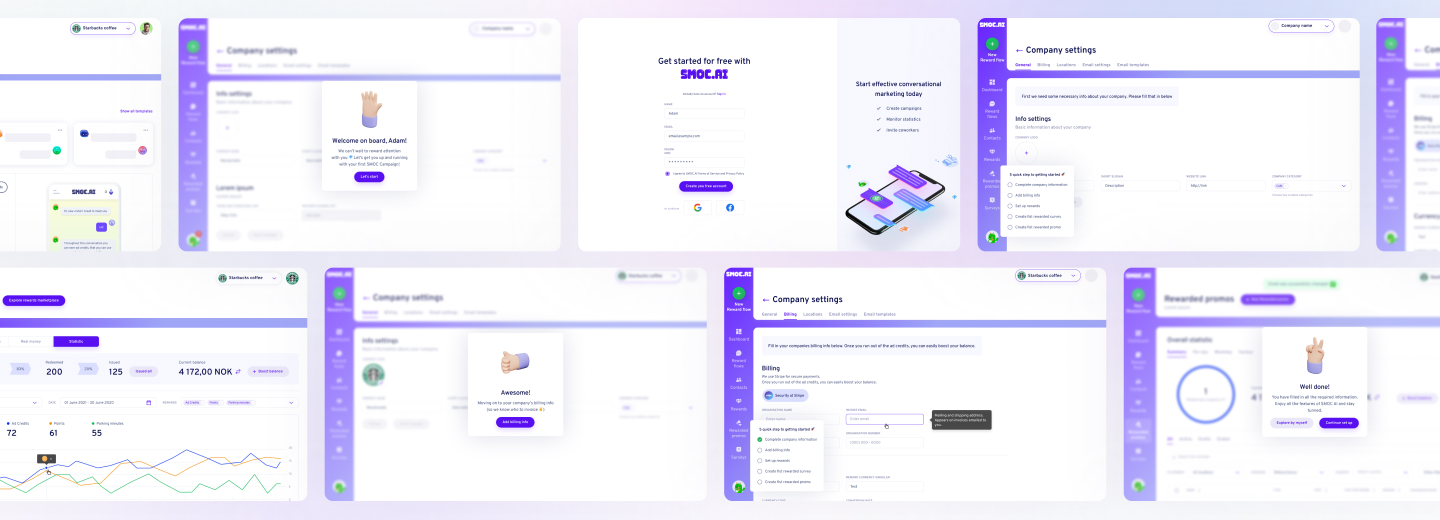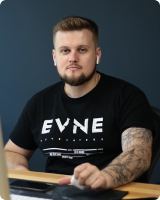You need a strong startup team to win your battle in the competitive market. While investors analyze your presentation they actively watch how well your team interacts with each other. Founders should focus on quality over quantity and hire professionals with the same passion and determination.
In this article, we want to provide you with effective strategies to assemble a team for a startup. To support your entrepreneurial path we collected key mentor insights below. Let’s continue.
what’s in the article
- How to Start Building a Startup Team?
- Important Team Members for Startup
- Identify Key Roles and Responsibilities
- How Team Strength Influences Investor Confidence
- Challenges in Building a Startup Team
- Tips for Retaining a Team
- Conclusion
How to Start Building a Startup Team?
For startup team building you need to know your mission and what each team member should contribute. First, think of the most important positions for your business and look for candidates who match your values, vision, and company goals. You need more than skilled employees to build your team – your future members should also have an innovation mindset, critical thinking, and motivation to boost startup potential. Each employee plays a crucial role in driving growth, overcoming challenges, and translating innovative ideas into tangible results.
Best Places to Source Talented Startup Team Members
You need to plan carefully when looking for startup employees. Identify key responsibilities, requirements, hard and soft skills. At the same time, don’t forget to think about what your company can offer to the candidate.
- Join startup-oriented networking events and professional platforms to find experienced candidates.
- Get support by joining university programs and coworking spaces to find talent who wants to help your startup grow.
- You can also access top talent through the power of referrals in your professional network.
- Don’t forget about LinkedIn as a social media platform for looking for new employees.

Looking to Build an MVP without worries about strategy planning?
EVNE Developers is a dedicated software development team with a product mindset.
We’ll be happy to help you turn your idea into life and successfully monetize it.
Important Team Members for Startup
You need start up team members with complementary skills, shared values, and a commitment to the company’s vision to help it succeed. Identifying and recruiting the right people for these key positions forms a durable basis for handling business growth challenges.
CEO/Founder
Starting a new business benefits the most from its CEO who sets essential targets and defines how the startup will grow. This person takes charge of company direction while showing others the way forward and inspiring creative minds throughout the team structure. The CEO directs investor connections and handles finances while being a public face for the company. A founder manages outside business activities, internal challenges, makes tough decisions, and remains adaptable in a rapidly changing environment. A startup relies on its leader to mix forward-thinking planning with everyday operational involvement to reach its goals.
Chief Technology Officer (CTO)
The Chief Technology Officer makes tech decisions to achieve business results. The CTO leads in product creation and guides teams while tracking market changes. The CTO builds strong scalable systems and solves critical issues affecting security performance and user experience. The skilled CTO helps startups use technology effectively ensuring that technology serves as a powerful enabler of growth rather than a barrier.
Developers
Developers at startups build the fundamental technology products such as software applications and digital services that define the business. Their job involves taking basic product ideas and making them work correctly for everyone while expanding their capacity. Skilled developers produce efficient programs, code, and team up with other experts to build solutions users demand. The startup development team’s role doesn’t end with initial development; ongoing maintenance, debugging, and updates are essential to staying competitive in a fast-paced market. A well-qualified development team will reduce startup costs and future problems while speeding up project completion.
Marketing and Product Manager
A marketing and product manager is a dual powerhouse, driving both product strategy and market outreach. The person ensures the product meets customer expectations by working directly with other teams to set details about features, costs, and product positioning. They create promotional efforts to make people know the brand and keep them returning. The marketing and product manager start up team connects market research and user feedback to help the startup match customer expectations and improve its product’s market potential.
UX/UI Designer
UX/UI designers directly control how users experience and use a product. They build user interfaces that look great while offering functionality to create pleasant user experiences. They specialize in user research while creating new design elements and improving them through customer feedback. An expert designer creates a product that is not only intuitive and enjoyable to use but also visually distinctive, which is crucial in a competitive market. The quality of user experience directly affects how much customers retain and like the product.

Proving the Concept for FinTech Startup with a Smart Algorithm for Detecting Subscriptions

Scaling from Prototype into a User-Friendly and Conversational Marketing Platform
Identify Key Roles and Responsibilities
Building a successful startup team structure begins with outlining the main responsibilities of each team member. Our company objectives determine what roles we need plus which business needs they will help solve.
Start by listing the basic job functions you need to reach your goals which include leadership skills, technical expertise, marketing, and operational knowledge.
Create clear goals and deliverables for each job so team members understand their roles and cooperate better with each other. Defined job roles enable effective teamwork and let team members utilize what they do best to reach startup targets.
How Team Strength Influences Investor Confidence
Investors trust startups more when they see a well-qualified team that proves the company can succeed over time. They evaluate the teams’ capabilities to implement business strategies rather than just examining ideas. A team that works well together and shows results while having different skills and passions proves the startup can handle future problems.
Investors need to see that your team has what it takes to guide your startup to success. Here are the key points:
- Complementary skills: Your team must represent leadership, technology, marketing, and financial expertise.
- Proven experience: Use past results to show your team has performed well in their specialty work.
- One vision: Share how your team supports the organization’s purpose and business targets.
- Adaptability: Include instances when the a team startup handled problems well while changing direction.
- Strong leadership: Explain your strategic ways to lead while keeping others motivated.
- Collaboration: Demonstrate the team works together, exchanges information openly, and runs as a single unit.
- Commitment: Show active enthusiasm along with full dedication toward meeting your performance goals.

Need Checking What Your Product Market is Able to Offer?
EVNE Developers is a dedicated software development team with a product mindset.
We’ll be happy to help you turn your idea into life and successfully monetize it.
Challenges in Building a Startup Team
Any effort to create an effective startup group comes with specific types of challenges. Startup development requires founders to overcome these difficulties by making smart decisions and encouraging teamwork.
You need to solve these challenges right away to build a team that can drive your business forward.
Building Trust
Trust forms the base of team success but remains elusive during the initial startup phase. Everyone on your team will have unique work experience and will want different things from the team. Bringing transparency to team communication creates opportunities for mutual trust and respect.
Managing Budget
Limited startup funding makes it hard for companies to hire top talents and control their daily business expenses. Founders should think about financial modeling at first and give competitive salaries that keep their businesses profitable. Innovative methods like providing equity and flexibility help to hire qualified workers without expanding the financial limits.
Competitors
Startups struggle to hire and keep the best employees because big companies pay more and provide better work benefits. Startups must highlight their distinctive organizational identity, unique culture, team spirit, and career development advantages along with meaningful job roles they don’t find in other firms.
Alignment on Vision
Team members work better together when they understand and follow the same company goals. When team members don’t share the same goals they create workplace problems and make work less effective. We achieve better outcomes when we unite employees through open company messaging and involve them in making strategic decisions.
Tips for Retaining a Team
The success of your team depends equally on development and retention strategies. A startup that pressures its employees must actively work to keep them motivated and engaged. Team dedication grows when the organization creates reward systems, supports professional development, and builds an inspiring work atmosphere.
Offer Growth Opportunities
Team members deeply appreciate chances to learn new skills and move ahead in their career paths. Startups help employees develop through structured training, mentoring, and clearly outlined professional growth steps. When team members see personal growth as part of their journey with the company, they are more likely to remain loyal and invested in its success.
Build a Sense of Purpose
When teams understand their purpose it drives excellent performance. Employees demonstrate strong dedication and provide top performance when they see their work applying to important aims. Startups need to share their company mission and values openly while showing how team roles support the overall business aims. Team members maintain their inspiration through recognition of what they achieve and value their work.
Conclusion
Building a strong startup team needs strategic thinking and well-designed planning. First, set your essential goals and explain what each team member will do. Build clear team levels and choose specific hiring methods to get the best candidates. Make your business stand the test of time by maintaining regular evaluations of teamwork and following growth plans that update as your business develops.
You need both entrepreneurial thinking and long-term commitment to build your all star team. It’s challenging but delivers great results.
We at EVNE Developers understand why a high-quality team leads to business growth. Contact us to discover how we can help your startup succeed with efficient modern methods. Top-notch experienced developers are available for your startup!
The time it takes to identify products depends on the type of project, but it typically takes from a few weeks to several months. The aim is to gather enough information and insights without delaying development unnecessarily.
Primary target groups involve product owners, designers, developers, and user experience researchers. Functional team elimination ensures diverse viewpoints and a well-rounded approach for a comprehensive discovery process.
Yes, the product discovery can be handed over to other competent agencies or consultants in the market. However, it’s important to remain in contact with your internal team to make sure that the whole project meets your business and user objectives.

About author
Roman Bondarenko is the CEO of EVNE Developers. He is an expert in software development and technological entrepreneurship and has 10+years of experience in digital transformation consulting in Healthcare, FinTech, Supply Chain and Logistics.
Author | CEO EVNE Developers


















